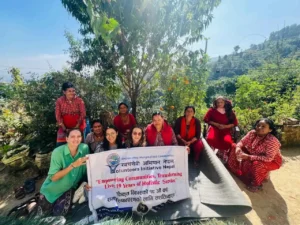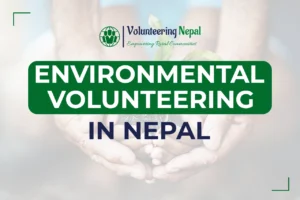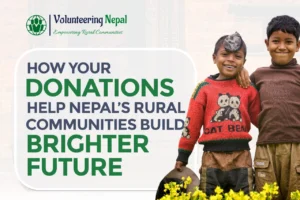
How to Apply for NGO Internship Programs Abroad: A Complete Guide
Applying for NGO internship programs abroad can open the doors to real-world experience and skills. This guide will show you how to find the right program and prepare your app. You will learn about the steps you need, what materials you need, and tips to stay strong.
Read on to start your journey towards making a positive impact by gaining valuable skills.
Research and Choose the Right NGO Program
Understand different types of NGOs
Start by understanding different types of NGOs and their characteristics. Some work in education, health, and environmental protection, while others are focused on human rights and social justice. It is essential to consider the organization’s size, as small NGOs often provide more roles and personal connections. By the way, larger people can provide more structured programs and widespread recognition.
Find programs matching your goals.
Look for internship programs that align with your personal and professional goals. Trusted platforms like Idealist, AIESEC, and UN Volunteers are great places to begin your search. Reading success stories and testimonials from past interns can provide helpful insights into what to expect.
Check eligibility criteria and language needs.
Before applying, carefully review the eligibility requirements for your selected program. Some NGOs have age limits, require a certain education level, or choose candidates with previous volunteer experience. Language can also be a significant factor, as some internships may require fluency in a local language or a basic understanding. Having the skills of a translation or language certificate can give you a competitive edge.
Prepare Your Application Materials
It is necessary to create an attractive resume and cover letter. Your resume-related teamwork, communication, and adaptability skills should be highlighted. Keep it brief and well-organized; use active language to display your experiences.
Your cover letter should express your passion for the NGO’s mission and explain how your background role is relevant. Assistant documents, such as teachers, previous employers, and language certificates, can strengthen your application and show your commitment.
Secure Funding and Visa Arrangements
Find Scholarships and Grants
International internships can be expensive, but there are many funding options available. Some NGOs offer stipends or partner with organizations that provide financial support. You can also apply for external scholarships specially designed for international volunteers.
Budget for travel and life costs
Based on the destination, it is crucial to consider budget, travel, housing, insurance, meals, and daily costs.
Understand Visa Requirements
The visa system is another crucial step. Do visa-type research for tourists, volunteers, or work, and apply well in advance to avoid delays or complications.
Ace the Interview Process
Once you land an interview, prepare for common questions such as why you want the internship, what challenges you anticipate abroad, and how you plan to handle them. Interviewers are often looking for culturally sensitive candidates who are respectful of local customs and open to new experiences.
Show that you’re adaptable and eager to learn. After the interview, follow up with a thank-you note and clarify any next steps to demonstrate professionalism.
Final Tips for a Successful Application
Always submit your application well before the deadline to increase your chances of success. Follow the instructions carefully and double-check all the material for accuracy. If you need to refer to it later, keep copies of everything you submit. If your application is unsuccessful, don’t be disappointed; ask for access and feedback for future opportunities.
Conclusion
NGOs overseas need commitment and careful planning to defend internships, but the rewards are worth it. You can move significantly towards personal development and global influence by conducting extensive research and preparing powerful application content and logistics (funds and visa).
Apply Now and Start early, become consistent, and you will be well on your way to gaining real-world experience when creating a meaningful difference.
1. What are NGO internship programs abroad?
NGO internship programs abroad are opportunities offered by nonprofit organizations in different countries for students, graduates, or career changers to gain hands-on experience in social, environmental, or humanitarian work while living in a foreign culture.
2. Who can apply for NGO internships abroad?
Anyone passionate about global issues can apply. Most programs are open to students, recent graduates, or professionals seeking a career change. Some programs may have age, language, or education requirements, so always check eligibility criteria.
3. Do I need to speak the local language to intern abroad with an NGO?
Not always. Many international NGOs use English or provide translation support. However, basic language skills or certifications can boost your application and help you connect better with the local community.
4. How do I find reputable NGO internship programs abroad?
Trusted platforms like Idealist.org, AIESEC, UN Volunteers, and NGO websites directly offer vetted internship opportunities. Reading past intern reviews can also help identify reliable programs.
5. How much does an NGO internship abroad cost?
Costs may vary depending on the destination and period. On average, for traveling, accommodation, insurance, food, and visas, the price ranges from $ 500 to $3,000. Scholarships, grants, or NGOs can help reduce the load.
6. Will I get paid for an NGO internship abroad?
Many NGO internships are unpaid, but some offer stipends, free accommodation, or more. It is necessary to clarify this with the organization before accepting the offer.
7. How early should I apply for an NGO internship abroad?
It’s best to start researching and preparing your application 3–6 months in advance. This gives you enough time to gather documents, secure funding, and manage visa arrangements.



